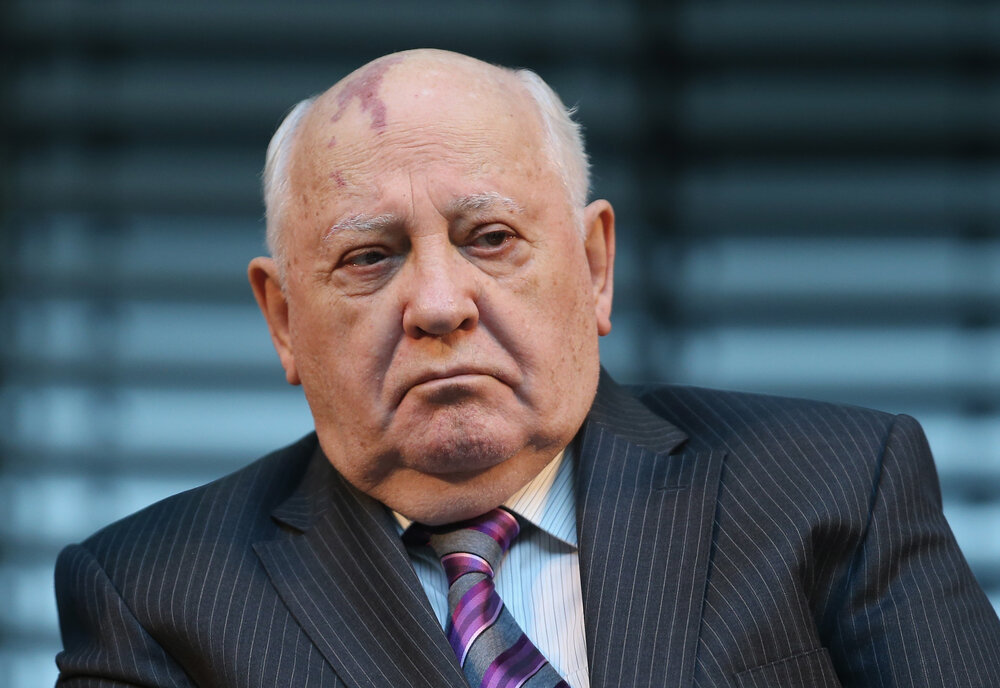Mikhail Gorbachev, the last leader of the Soviet Union, has died. He was 91.
Best known for bringing about the end of the Cold War, Gorbachev waged a losing battle to salvage a crumbling empire.
Only in power for seven years, he unleashed a breathtaking series of reforms, which resulted in the collapse of the authoritarian Soviet state, the freeing of Eastern European nations from Russian domination and the end of decades of East-West nuclear confrontation.
"Today in the evening (Tuesday), after a long and serious illness, Mikhail Sergeyevich Gorbachev passed away," the Central Clinical Hospital (TSKB) in Moscow said in a statement cited by Russian state-owned news agencies, according to Euro News.
Gorbachev -- born into a poor peasant family of Ukrainian and Russian heritage -- may have had a greater impact on the second half of the 20th century than any other political figure.
Taking over the USSR in 1985, when he was just 54, Gorbachev tried to breathe new life into the ailing empire by opening it up to the world and introducing reforms at home.
His policy of Perestroika brought in some market-like reforms into the state-controlled economy, while his policy of glasnost granted people more liberty of expression in the social sphere.
These reforms helped trigger the collapse of the USSR, allowing for the emergence of modern Russia.
“I see myself as a man who started the reforms that were necessary for the country and for Europe and the world,” Gorbachev told The Associated Press in a 1992 interview shortly after he left office.
“I am often asked, would I have started it all again if I had to repeat it? Yes, indeed. And with more persistence and determination,” he said.
Gorbachev won the 1990 Nobel Peace Prize for his role in ending the Cold War and spent his later years collecting accolades and awards from all corners of the world.
As General Secretary of the Soviet Communist Party, he struck arms control deals with the empire's nemesis the US, ended the brutal Soviet war in Afghanistan and did not intervene when eastern European nations rose up against their communist leaders in the late 80s and 90s.
These accomplishments earnt Gorbachev the respect and praise of some Western leaders.
US President Joe Biden called him a "rare leader" and said Gorbachev had the "imagination to see that a different future was possible" during a time of alarming tensions between the USSR and Western nations.
In 1990, he was awarded the Nobel Peace Prize "for the leading role he played in radical changes in East-West relations."
Yet Gorbachev was a controversial figure at home.
Some Russians blamed him for the 1991 implosion of the Soviet Union — a once-fearsome superpower whose territory fractured into 15 separate nations — and the terrible economic shocks that followed.
Yet others praised him for giving personal freedoms a chance to emerge and trying to end hostilities with the West.
Towards the end of the Soviet Union, Gorbachev's decline in power was sapped by an attempted coup against him in August 1991. He spent his last months in office watching republic after republic declare independence until he resigned on 25 December 1991.
The Soviet Union wrote itself into oblivion a day later.
Many of Gorbachev's changes, including the Soviet breakup, bore no resemblance to the transformation he envisioned when he became the Soviet leader in March 1985.
His former allies deserted him and made Gorbachev a scapegoat for the country’s troubles, which helped create a divisive legacy.
Vladimir Rogov, a Russian-appointed official in occupied Ukraine, said Gorbachev had "deliberately led the [Soviet] Union to its demise," labelling him a traitor.
From 1991 onwards, Gorbachev was marginalised and sidelined in Russian politics, despite trying to stage a political comeback in 1996 in presidential elections, where he received a minuscule 0.5% of the vote.
Gorbachev did not publically speak about the Ukraine war, which has caused tensions between the West and Russia to rise to levels not seen since the dark days of the Cold War.
In a statement on 26 February, two days after the outbreak of conflict, Gorbachev's foundation called for a "cessation of hostilities" in Ukraine and "immediate peace negotiations".
In recent weeks, the Russian media had mentioned the former leader's recurring health problems. In June, it was reported that he had been admitted to hospital with a kidney problem, although his cause of death is yet to be revealed.
Russian government news agency TASS reported that Gorbachev will be buried at Moscow’s Novodevichy cemetery next to his wife.


No comments:
Post a Comment